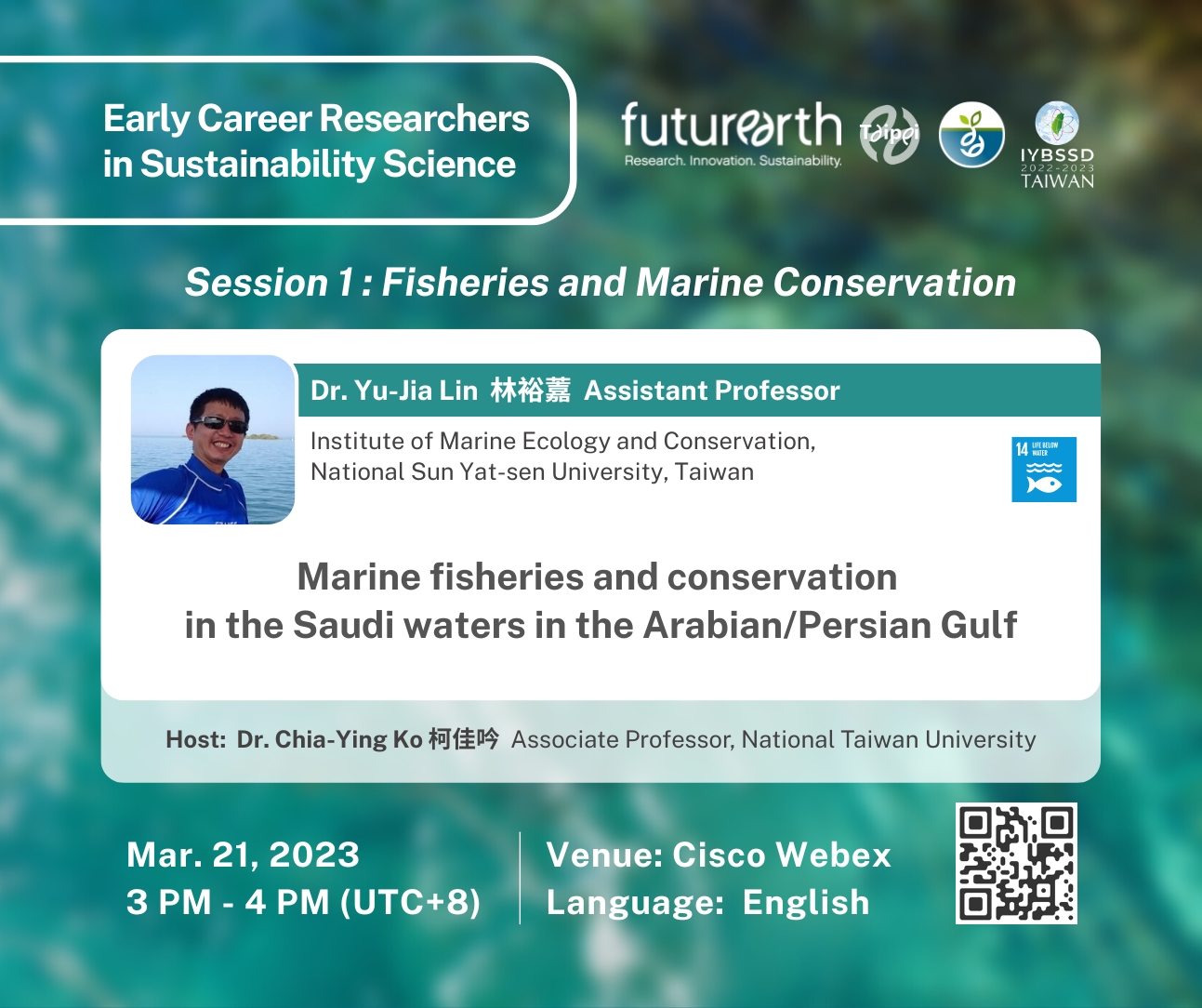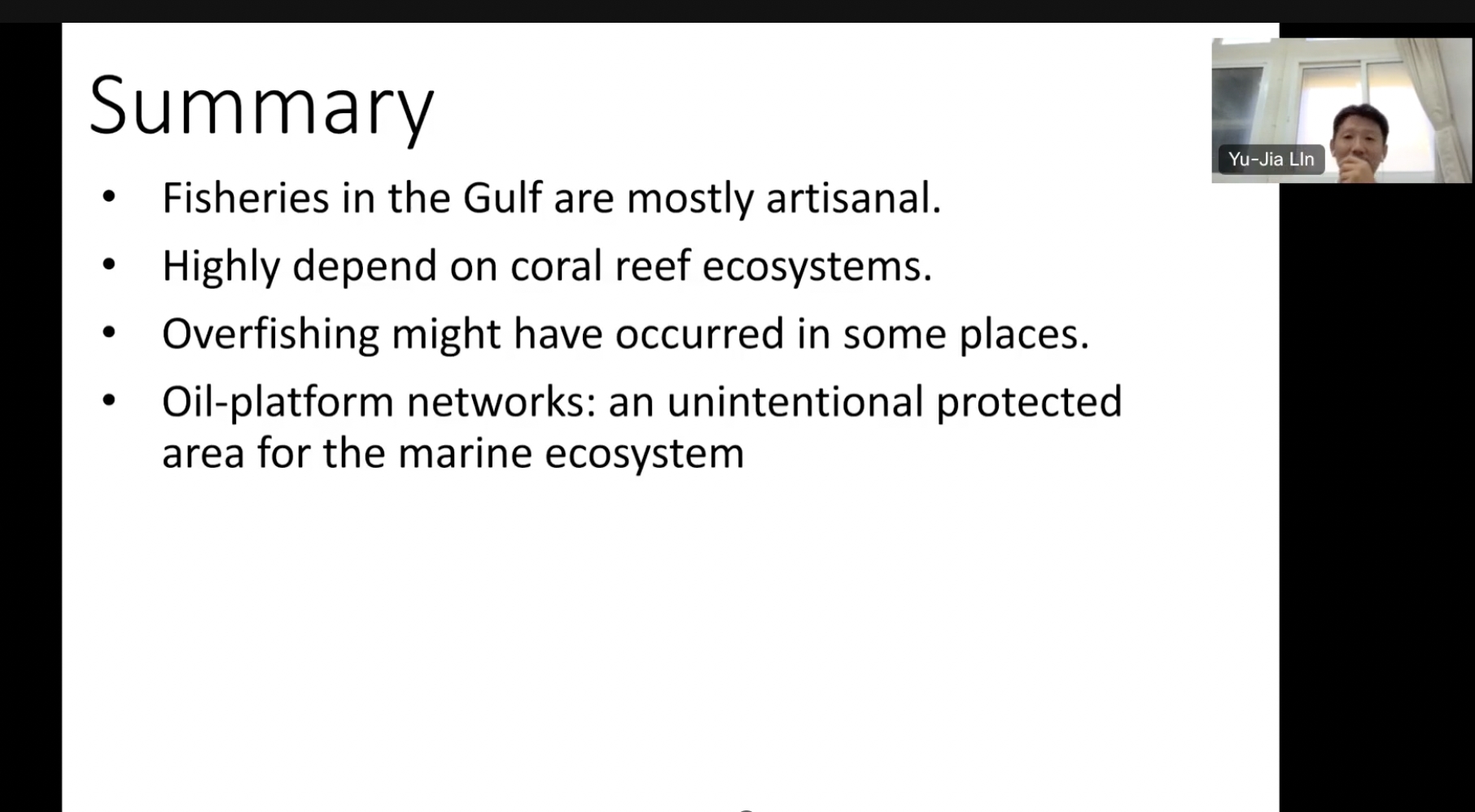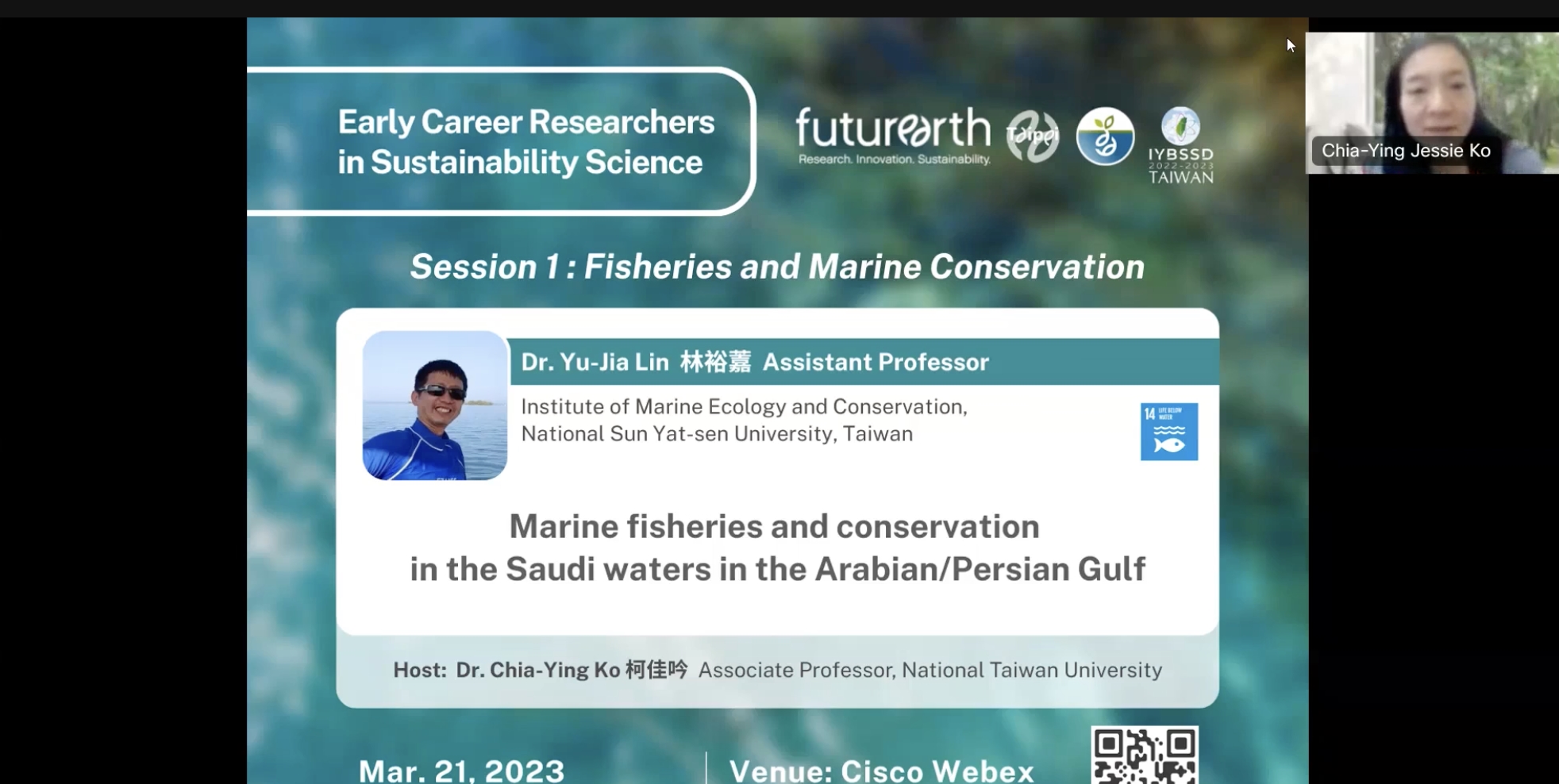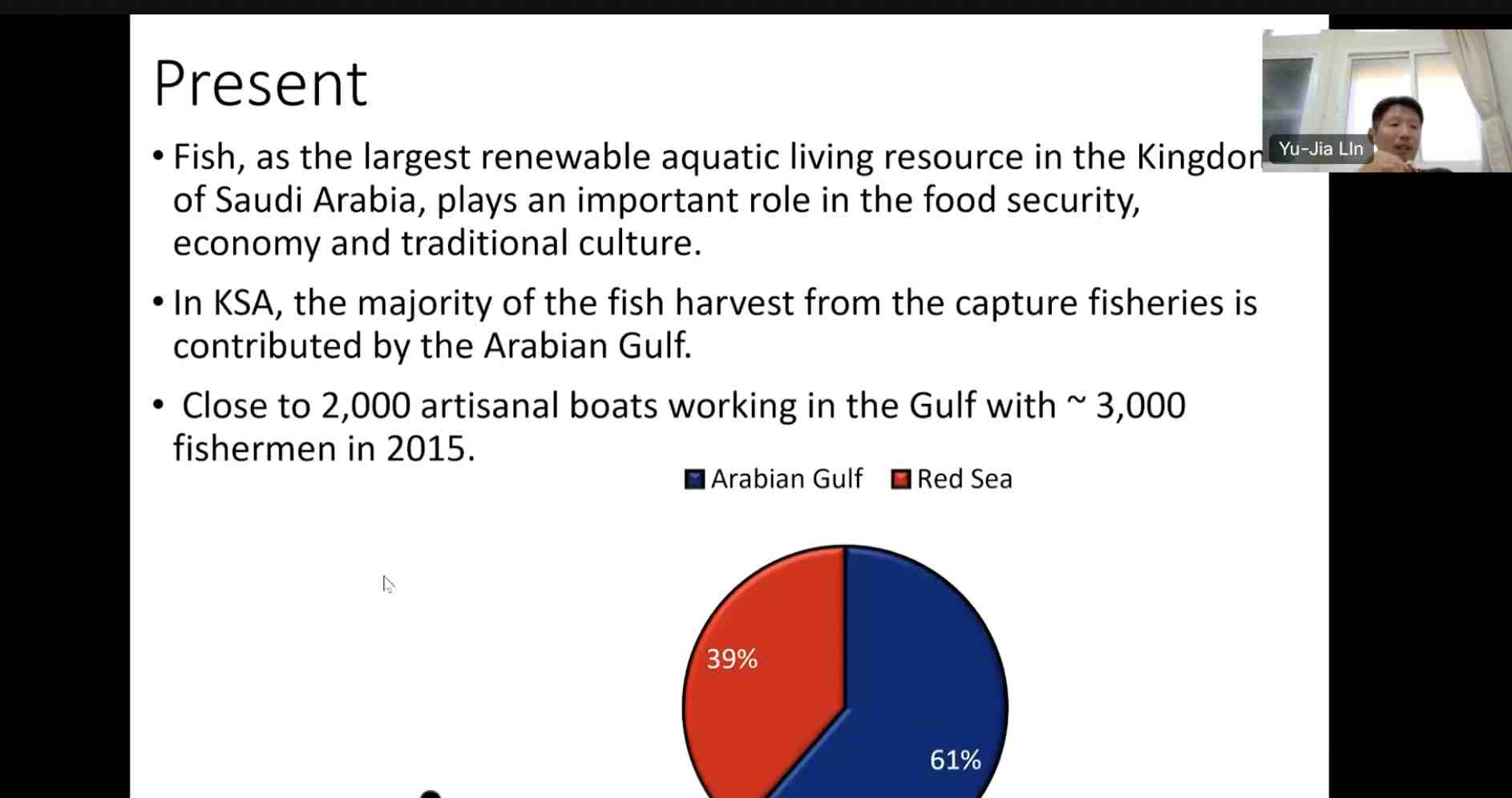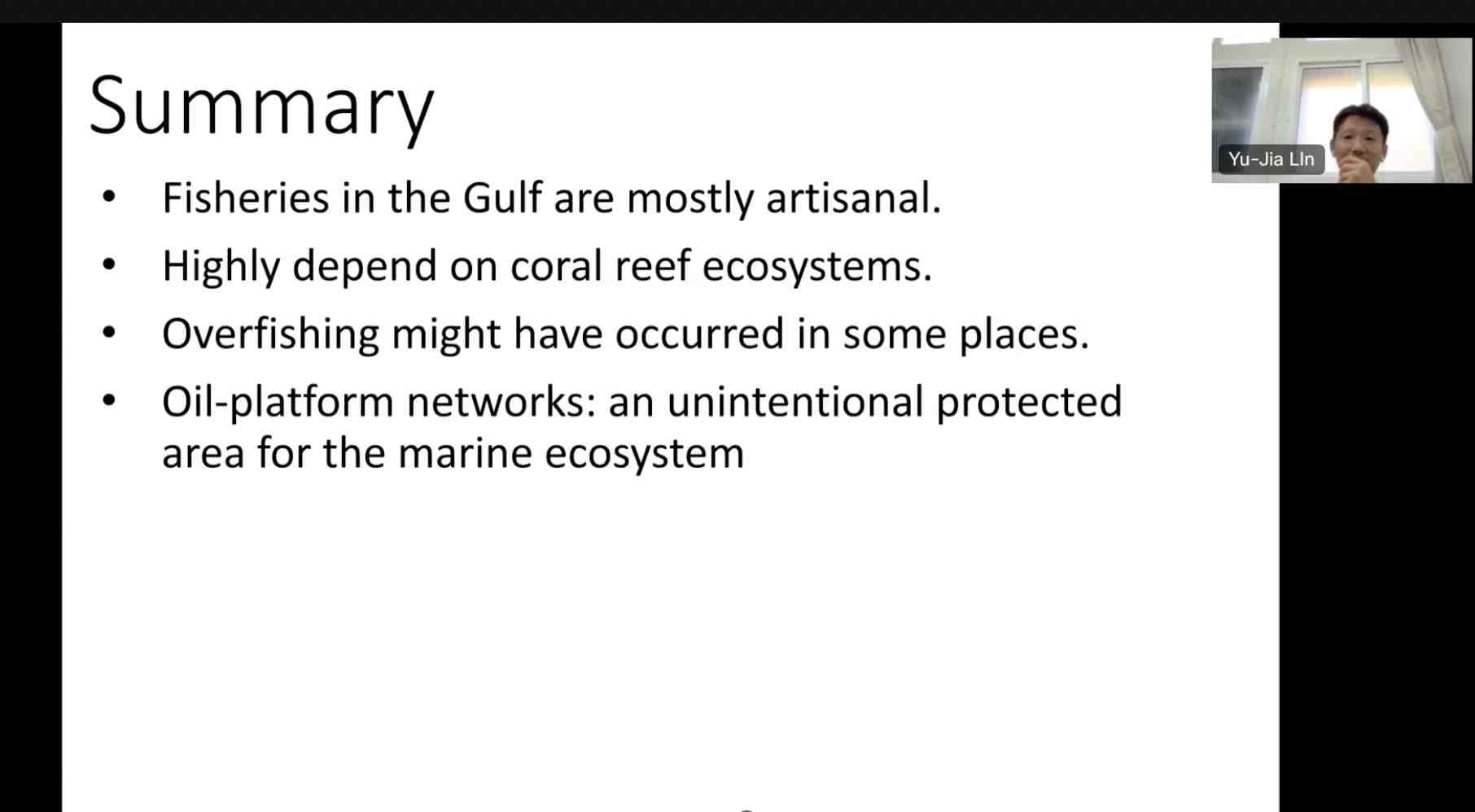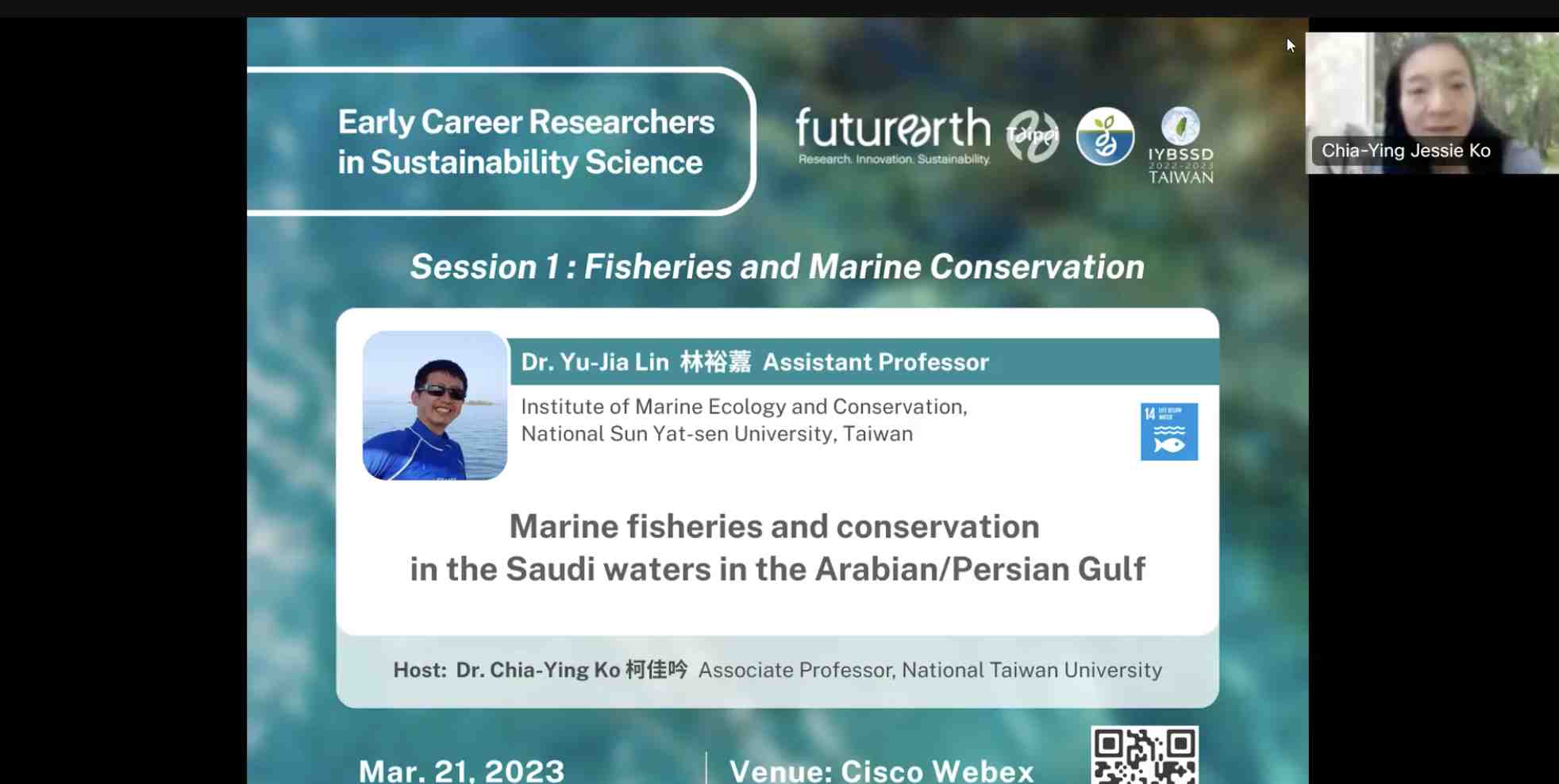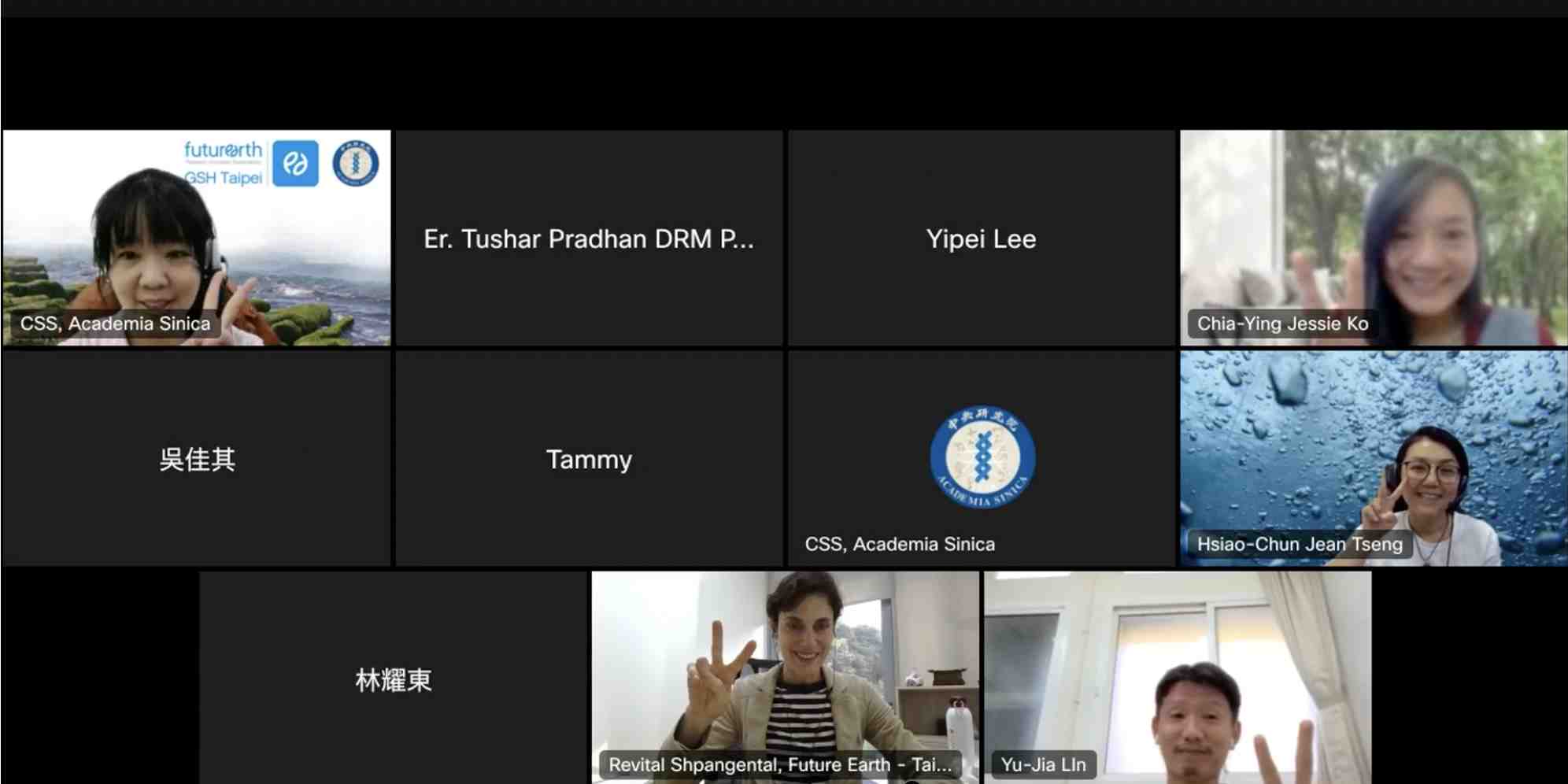???????????????? ???????????????? ???????? ???????????????????????????????????????????????????????? ????????????????????????????┃Fisheries and Marine Conservation〗— ❐ S1-2 Marine fisheries and conservation in the Saudi waters in the Arabian/Persian Gulf ❐
Saudi Arabia has a long coastal line in the Arabian/Persian Gulf. The fisheries have played an important role in supporting the livelihood of the residents for thousands of years. The Saudi fisheries in the Arabian Gulf are characterized by low levels of industrialization and high dependance on coral-reef associated fishes. Bottom trawling for the shrimp was introduced in the 1970s and contributed considerably to the landings. A fishing season was later enforced to limit the destruction to marine habitats. For the extraction and process of oil, the oil-industries have installed hundreds of facilities in the Arabian Gulf. These facilities have an unprecedented effect of being a de facto marine protected area in which fishing activities were not allowed for security reasons.
Activity Goals aligned with SDGs Projects



Goal
Science Cultivation、Public Engagement
Type of event
Seminar/Forum/Lecture
Workshop/Symposium
Organizer
- ECR working group
Future Earth Taipei - Future Earth Taipei Hub - IYBSSDXTAIWAN - 中央研究院 永續科學中心 Center for Sustainability Science
Academia Sinica
Event Audience
discuss sustainable fishing practices and the protection of marine habitats in the Arabian Gulf
Contact
To discuss sustainable fishing practices and the protection of marine habitats in the Arabian Gulf
Telephone Number
27872536
dolly0105@gate.sinica.edu.tw
Result
This early career's conference on sustainable development science focuses on the fishery and ocean protection of the Arab/Persian Gulf. Dr. Lin Yujia, assistant professor of the Institute of Marine Ecology and Conservation, National Sun Yat -sen University in Taiwan, gave a speech in the first session, which involved marine fisheries and protection in Saudi waters.Dr. Lin Yujia pointed out in his speech that the Bay of Arabia is a subtropical seas with extreme physical and environmental characteristics, and there are great differences in salinity and temperature. In Saudi Arabia, fish is one of the largest renewable aquatic biological resources and plays an important role in the country's food safety, economic and traditional culture. Most of the fisheries caught fisheries from the Arab Bay. In 2015, nearly 2,000 handicraft boats and about 3,000 fishermen worked in the waters.In addition, the speech also discussed some fishery activities around the oil well platform, especially the exclusion effect of dragging the net fisheries, because the platform structure may damage the gangster, forcing fishermen to keep the distance. In addition. Non -expected protection areas around the oily well may have a positive impact on fishery and ocean protection in the Bay of Arabia.In short, this meeting provided in -depth insights facing the challenges and opportunities facing the Arab Bay marine fishery and protection, and emphasized that sustainable practice to maintain food safety, economy and traditional culture in the region.
Number of Participants12人
Video LinkFeatured events
Contact Us
- Tel: 02-7749-6818
- Email: iybssdtw@gmail.com
Adviser

自然科學及永續研究發展處
Organizer
國立臺灣師範大學科學教育研究所、自然科學及永續研究推展中心、國立成功大學材料科學及工程學系、台灣物理學會、中國化學會
Co-organizer
中央研究院永續科學中心、中原大學物理學系、中華民國數學會、行政院原子能委員會、財團法人國家實驗研究院國家高速網路與計算中心、財團法人國家衛生研究院、高雄市政府教育局、國立中央大學科學教育中心、國立中正大學科學教育中心、國立成功大學科學教育中心、國立自然科學博物館、國立東華大學科學教育中心、國立科學工藝博物館、國立海洋生物博物館、國立海洋科技博物館、國立高雄大學科學教育中心、國立高雄師範大學、國立清華大學跨領域科學教育中心、國立彰化師範大學、國立臺灣大學科學教育發展中心、國立臺灣科學教育館、國家衛生研究院、淡江大學科學教育中心、逢甲大學綠能科技暨生技產業發展研究中心、臺北市政府教育局、臺灣永續棧、臺灣海洋聯盟、臺灣港務股份有限公司
